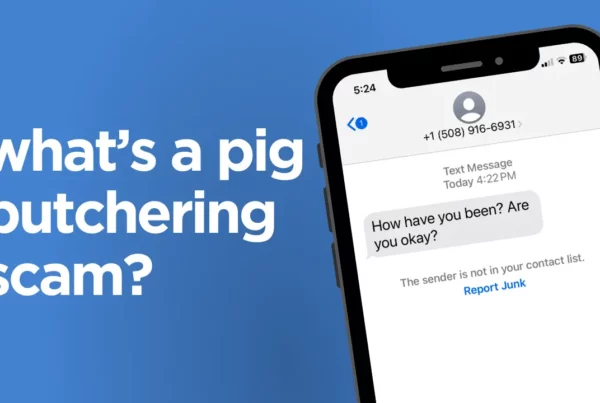
Whether for work or personal use, our reliance on technology has never been higher. As this reliance grows, so do the associated cyber risks. And when more people are working remotely, the potential for a cyber incident increases in different ways.
Cyber criminals know that when more people are communicating online, they’re interacting with technology in different ways – even sometimes using networks or software for the first time. Bad actors often attempt to take advantage of such situations, using deception to gain access to protected information. At the same time, corporate IT and operations teams are working overtime to keep networks running without interruption – potentially impacting their ability to detect malicious activity quickly.
This makes protecting confidential information more challenging than ever. At Wedgwood, we look for ways to do more for our clients, like suggesting ways to possibly help you prevent issues from happening in the first place. Following these ten tips may help your business and your employees stay cyber-safe, even in periods of uncertainty.
1. Prepare for IT resourcing issues from both a people and a technology perspective.
When more people are connecting remotely, technology call centres may face a higher call volume than normal, and more resources may be needed outside of standard business hours. Simultaneously, network bandwidth, data storage capabilities, and computing power are put to the test. Despite this increase in traffic, attention to detail cannot falter. Businesses are encouraged to keep a close eye on these needs, prepare a plan to reallocate resources as necessary, and recognize that this dependency may increase over time.
2. Ensure your remote access technology, software, and applications are up to date.
Remote access technologies have known vulnerabilities – and are all too often the weak link that cyber criminals use to gain access to your personal information. Make sure to update all software and applications, so that any known weaknesses are patched and you and your family are better protected.
3. Only connect to the Internet through a secure network.
When you connect to a public network, any information you share online or via a mobile app could be accessed by someone else. When accessing confidential information from your employer, use a Virtual Private Network (VPN) to encrypt your activity. Most organizations provide a VPN to their employees to ensure secure, remote access for work use, and personal VPN accounts are available from various service providers. If your kids are accessing a website for online learning, make sure your router software is up to date and you’re using a strong password that only your family knows.
4. Use strong passwords.
Many people use the same or similar version of a password for everything, even between work and home. Unfortunately, this means hackers can reuse a single stolen password on multiple sites to unlock dozens of accounts. While remembering secure and complex passwords for every account can be difficult, it can help to use password management software, which provides strong, unique passwords for everything.
5. Use multifactor authentication.
Traditional user login and password accounts are easy for cyber criminals to crack. Whenever possible, set up multifactor authentication on your accounts. This requires you to provide at least two authenticating factors, or proofs of identity, before you can access protected data, giving you a second line of defense against criminal activity. This additional level of protection is essential when you are accessing networks remotely because bad actors will have a harder time accessing a private network.
6. Only share information with actual friends and family on social media.
While you and your kids are stuck at home or practicing social distancing, you may want to turn to social media to connect with friends and family. Just make sure you’re only sharing with people you know and use strong passwords. Cyber criminals constantly target social media accounts, so don’t let them in yours.
7. Keep your smart toys and homes updated.
Bad actors are finding ways to hack into smart appliances, homes, and toys – especially if they are not protected with strong passwords. Change the default password and update the software regularly. Keep an eye on how your children use their smart toys and turn them off during private discussions.
8. Only click on links, open attachments, and download software from trusted resources.
While you may want to stay informed about the latest information, especially during periods of uncertainty, bad actors know this, and will attempt to take advantage of you by tricking you into thinking a malicious link is something important and informative. Once you click it, they can use that malicious link to gain access to your or your organization’s private information, and/or freeze the computers or networks. If you’re not sure about the source, go to the organization’s website. If it’s important, the information will be posted there as well.
9. Verify website URLs before sharing confidential information.
Bad actors can easily create fake websites in which both the URL and homepage look remarkably similar to a site you trust – like your healthcare provider, bank, or email provider. Instead of following a link in an email, type the URL in by hand. Also, make sure the site you visit has HTTPS in the URL; these sites are more secure than those with HTTP.
10. Don’t respond to requests for information from unknown sources – especially if the request is for personally identifiable information or passwords.
Bad actors attempt to con people into sharing confidential information by pretending to be someone you know or work with. Take extra care to identify who you’re sharing information with before you share it – even if you think the request came from a trusted resource or organization. Don’t feel rushed; take the time to research the request and whether it’s appropriate before responding.
Contact Us
List courtesy of Chubb Insurance






